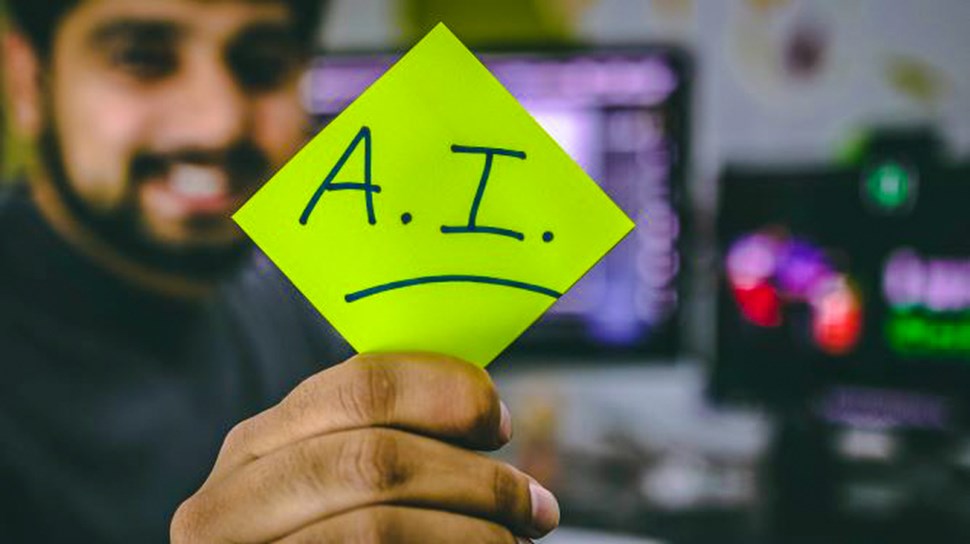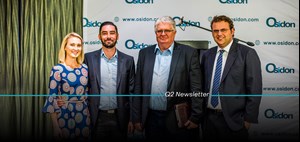A 2013 study
by Carl Benedikt Frey and Michael
Osborne of Oxford University
predicted that 47% of the jobs
in America were at risk of being
substituted by ‘computer capital’.
Similar claims of massive job losses
were made as far back as 1821,
during the industrial revolution,
when it was feared that the
employment of machinery “would
be detrimental to the labouring class”. In reality, the increased
use of machinery resulted in more
meaningful jobs and the resulting
increase in productivity has had a
positive impact on society.
AI may be different from the
industrial revolution, however. It has
been revolutionised by a technique
known as ‘deep learning’ that allows
systems to learn by being exposed
to numerous examples, rather than
having to be explicitly programmed.
A good example is Siri, Apple’s
virtual assistant. Over time, the
software adapts to users’ searches,
preferences and even their language
uses, rather than being specifically
programmed.
“... the AI system
designed to identify
malignant tumours
in patients’ lungs was
50% more effective
than a group of three
radiologists working
together and had a
false negative rate of
zero compared to the
average human rate
of 7%.”
According to The Economist
(June 25, 2016), jobs that are
vulnerable to automation are
those that are routine in nature.
Traditionally this has applied to
manual labour – however, AI will
be effective in routine tasks
whether manual or cognitive.
In a test done by Dr Barani, the
CEO of Entilic (a start-up applying
to deep learning to medicine),
the AI system designed to identify
malignant tumours in patients’
lungs was 50% more effective
than a group of three radiologists
working together and had a false
negative rate of zero compared
to the average human rate of
7%. The implication is that a highly
skilled radiologist may be more
easily replaced by a machine than
an executive assistant, because
of the diversity of the work and
the nature of the decision making
that is required.
Jobs that require empathy or
social interaction, like doctors,
carers, therapists and even
personal trainers, will always be
done more effectively by humans.
Financial advisors and wealth
managers will probably also fall
into this category – while young
people may be comfortable using
robo-advisors for their initial
investments. As they accumulate
more wealth and start planning
for their retirement, the need for
social interaction will increase,
largely because the consequence
of error is so significant.
(Unlikely) Early Adopters
The increased use of AI will also
result in a changing investment
landscape. Companies that are
taking the lead in the adoption
of AI in various sectors are:
Volkswagen (VW) - while it may be
difficult to conceptualise, at some
point in the future AI algorithms
will replace human drivers in
cars. Given some of the driving
practices in South Africa, this will
definitely be most welcome. VW
has its own AI labs and in order
to improve the way cars ‘see’ and
react to situations around them,
they have entered into partnership
agreements with chip maker
Nvidia and with self-driving start-up Aurora.
JP Morgan Chase (JPM:US) - AI
is most effective where there is
a large amount of data available,
and over the years the banks have
accumulated vast amounts of data
on customer transactions, interest
rates, market movements etc. JP
Morgan is the largest bank in the
US and they are using algorithms
to assist clients in making better investment and trade decisions.
Another potential use is the
identification of fraudulent
transactions based on client
profiles and transaction history.
Philips (PHIA:NA) - Philips uses AI
to support medical professionals
by analysing and interpreting
data and detecting deviations
from normal, so they are able to
diagnose and treat diseases faster
and with greater precision. Philips
defines their role as augmenting
rather than replacing healthcare professionals.
Panasonic (6752:JP) - Panasonic has
a very broad product range, ranging
from televisions to the joint venture
with Tesla producing batteries for
electric vehicles. They are currently
working on special purpose projects
for the detection of pedestrians in
autonomous vehicles.
AI will change the world of work
and will potentially disrupt existing
industries. Not only do we need
to make sure that our skills remain
relevant, we also need to build an
investment portfolio that will benefit
from the changing environment.






